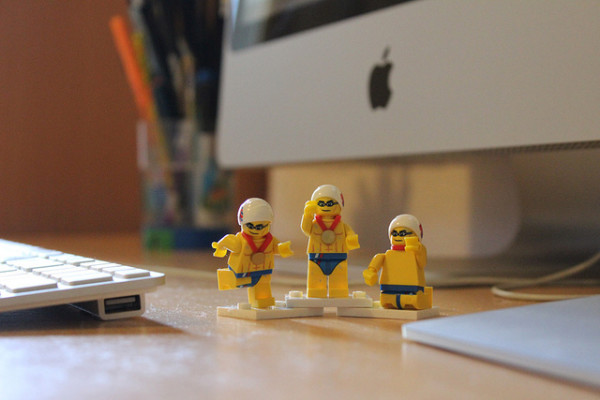VConnect has an intriguing connection with blood. It’s where our reality started. I was in an accident in 2010 where the people needed blood.
In an attempt to make myself useful, I went on Google in search of blood banks in Lagos.
Two things happened that surprised me. (a) no blood banks were listed in Nigeria and (b) the only Lagos that existed online was Lagos, Portugal.
It was at this time that we started to see the crippling information asymmetry that existed. Although there were blood banks in Nigeria and people who needed blood, there was no way for both these segments to meet.
Building VConnect V1
This trend extended to SMEs, as we later found out. People needed information about SMEs, but there was no single network to find them. Equally important; SMEs wanted easier access to the market, but they could only access the few customers close to their offline locations.
There were more than 12 million SMEs in Nigeria at the time, where only about 2% were searchable online.
And there, we had the basic thesis for the first version of VConnect – “help people find the information they need to live and help businesses access customers they need to survive.”
The first version of VConnect, therefore, prioritized “finding” SMEs.
In 2011, when our low-fidelity website went live, we had ~ 200,000 listed businesses. Traffic was hitting our website more than our servers could handle. We had series of downtimes, some as long as five hours. But each time we went back up, the traffic was waiting to pounce.
Our hypothesis was validated. Never mind our patchy website, people and SMEs derived immense value from our offering. Until they didn’t.
Measuring and building VConnect V2
A few months after we launched, people began figuring creative use cases for our platform. A key discovery was that people didn’t just want to see contact details and addresses of businesses, they wanted to initiate transactions. Calls to our helpdesk asking for prices and the best stores to buy from suggested this.
So, while we cleaned up bugs on our platform, we started to think deliberately about a network that would not only let people find business, but also help them buy from them.
This idea culminated in our extension of the platform in 2015. We used about two years to build what we thought would be the definitive online marketplace for Nigerians. With our 1.2 million-strong database of businesses and a simple platform to boot, we were sure the platform would deliver on what our users wanted.
But our user numbers had other ideas. Visits to our website plunged, and our CRM team had one too many calls asking “what happened to VConnect?”
Although traffic began to normalize a few months later, it was clear to us that we now appealed to a different crowd. Whereas our intention was to extend the experience of people looking for local business information online by letting them buy too, we appeared to have unwittingly turned our back on them.
A few users saw our marketplace and ran away with the impression that the businesses were gone. This was not true, but really, only our team of 80 staffers knew that. Thanks to Google we were still top-listed for majority of the categories
Learning and building VConnect V3
But we were learning – the hard way – that we were not the top-of-mind solution we were a few months before.
The fact that people wanted to buy from businesses, however, hadn’t been invalidated. Our sales at least told us that. A lot of the sellers on our platform were wholesalers and distributors. So it was easy for people to find the lowest prices.
Still, we left a gap we were not comfortable to leave open. A segment of people looking for “complete information” about products, services and businesses were unable to do so because our new interface suggested something different.
It was why we began to re-engineer what VConnect was. It’s why if you go on VConnect.com today, you will see how we have placed the search bar where it can’t be missed. We now prioritize business results while keeping products visible enough to get attention from someone looking for them.
People are able to find businesses easily, and businesses are able to get the visibility and sales that they need. Our plan is not to be just a directory again, or yet another marketplace. But a simple combination of both and some more.
On top of that simple platform, we layered a social authority functionality that lets people promote the best businesses using crowd insight in the form of lists, ratings, and reviews. We are now what you’ll call a social discovery platform.
We’ve come full circle, through the lean startup methodology of building, measuring and learning.
And that thinking will inform our future. We are confident in our platform’s ability to help SMEs build brands and get found, but what we’ve done doesn’t begin to touch the tip of what we can become. It’s why continuous testing and hacking remains a big part of our attitude as a company.
That’s also our future. We are testing everything, relearning new perspectives, removing the fluff and building out only the functionalities that align with our users’ reality. That’s the only way to build a product for Nigeria. That’s a good way to build a product, period.
Deepankar Rustagi is the GM and co-founder of VConnect, a social discovery and engagement platform for Nigerian businesses. He tweets at @rustagid.















